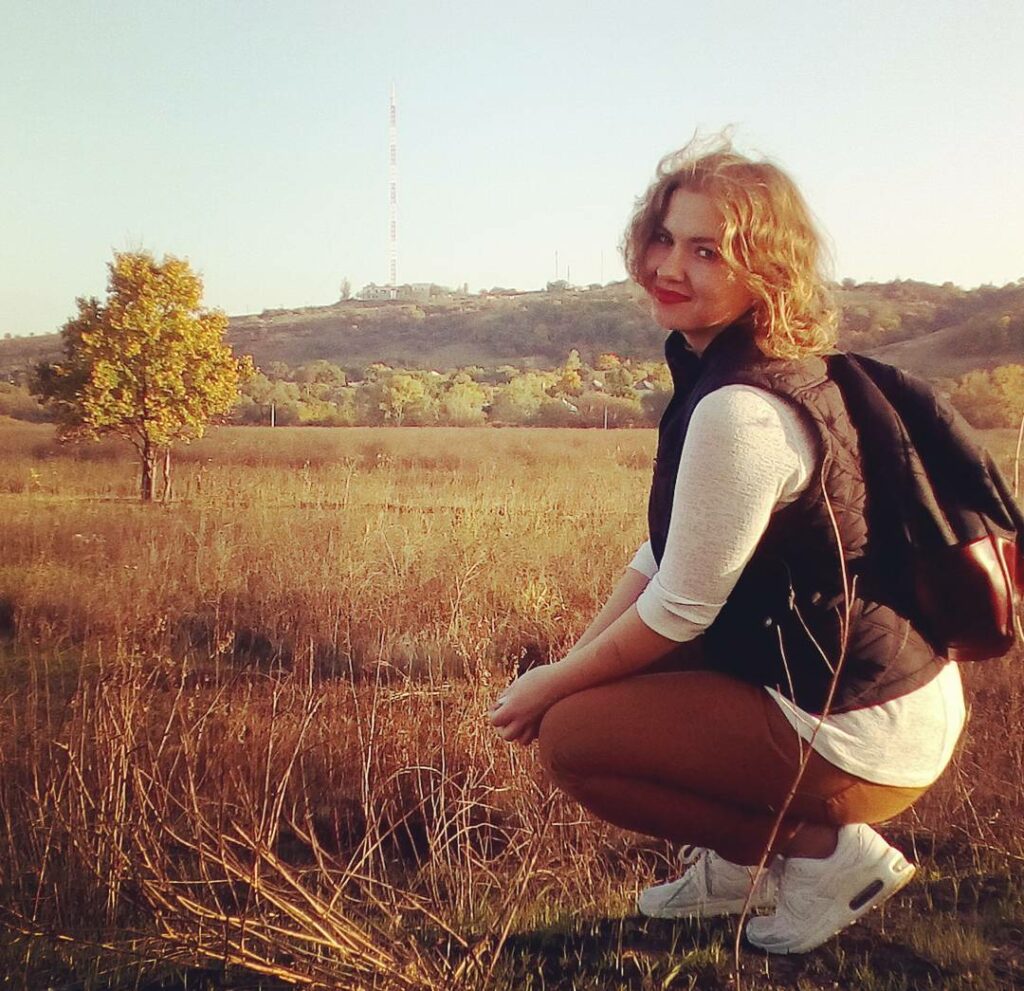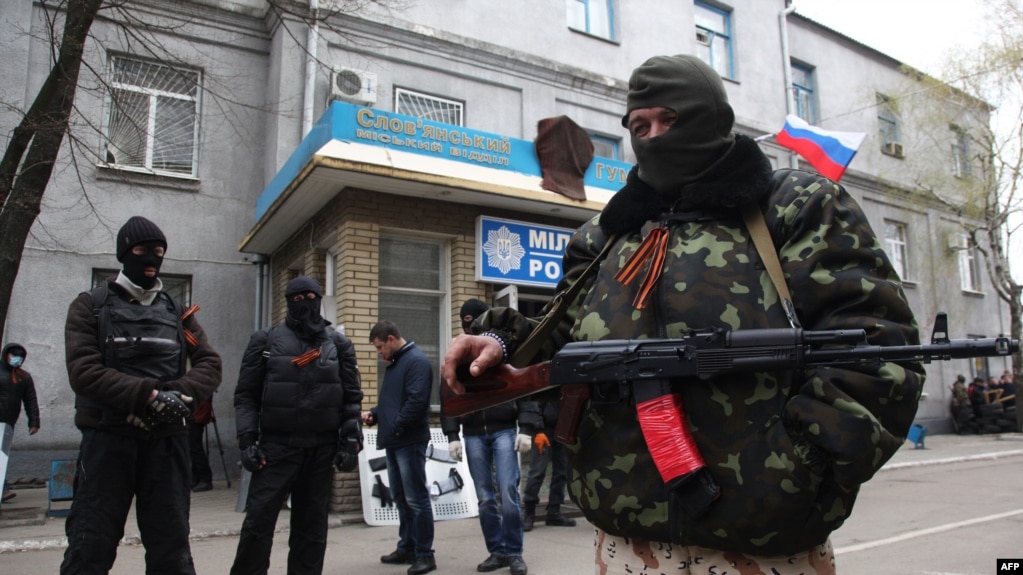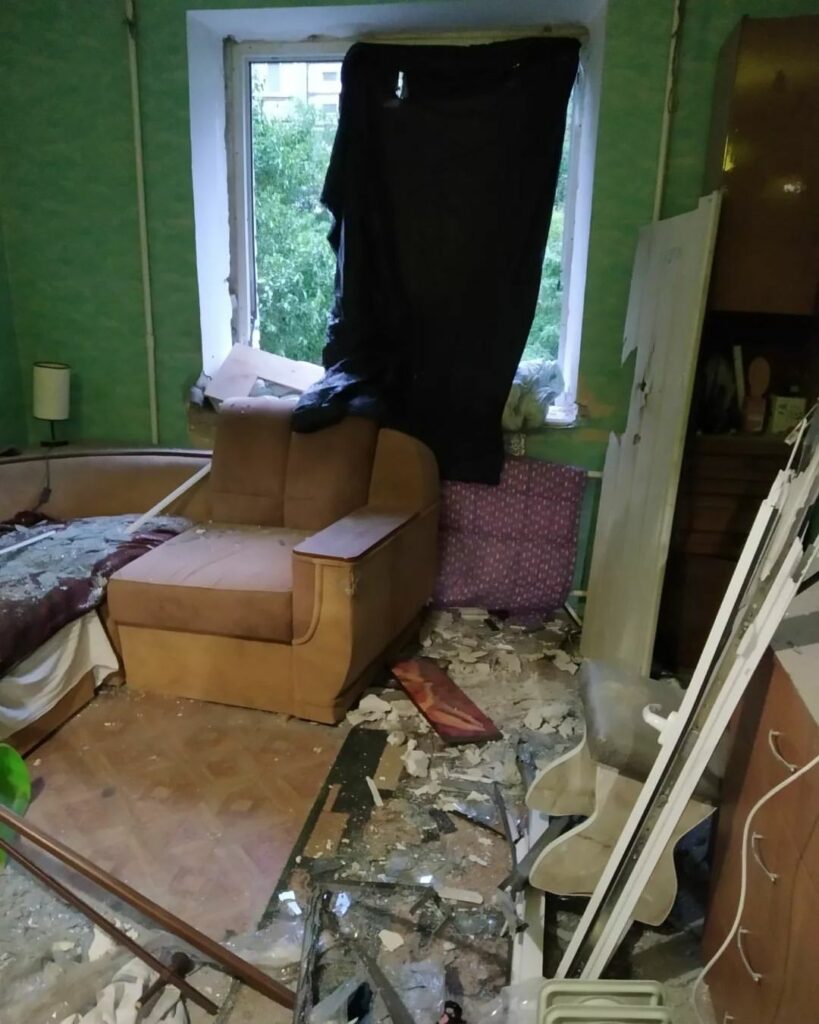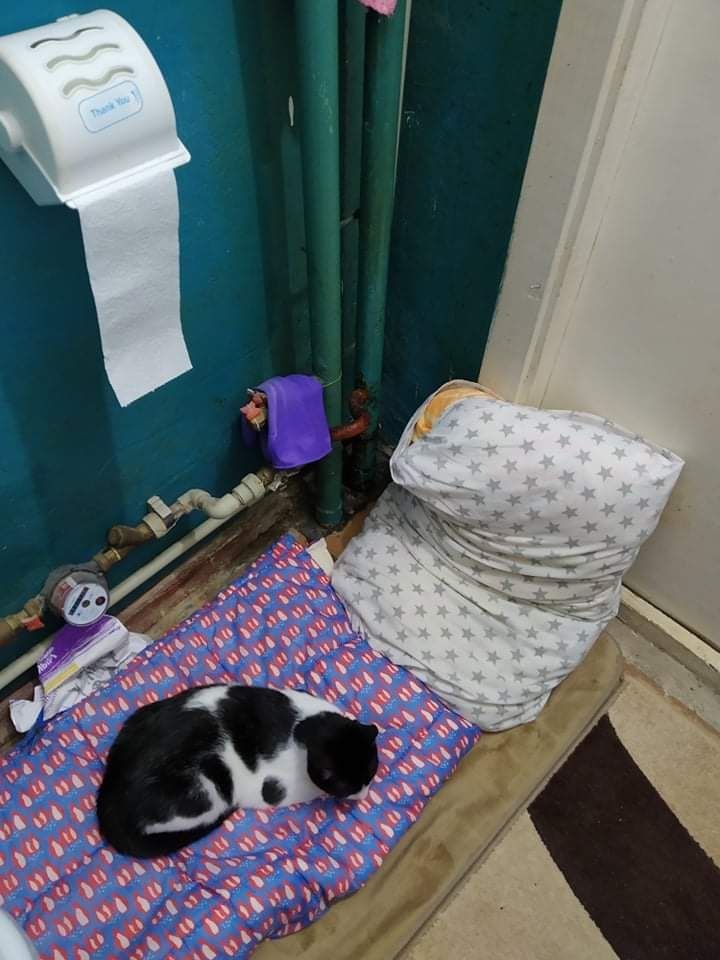For eight years now, no one in the world who regularly watches television news needs an explanation where Sloviansk is located. This is where the Russian invasion of Ukraine began in 2014. The rumbling of tanks, the shelling of Grads, and the frightened faces of people have long been the signature style of the “russian world”, a philosophical concept that became an ideological platform of ruscism or russian neo-colonialism.
Yulia Vynnyk was among those residents of Sloviansk who decided that they could not live with it. Eight years ago, the war made her leave home.

Today she says: “Once, before the war, I dreamed of a home. I wanted to build a house, have children and a dog, that’s it. And now I fall asleep and wake up with one thought: “God, let him live, let the boys come home, let the orcs leave us in peace.” That’s it. I don’t need anything else. I just want to return home with my husband.”
“Russian world”-2014
Since April 2014, Sloviansk has been an area of hostilities between terrorist groups and the Ukrainian army.
“When they came to ‘liberate’ us in 2014, there was a feeling of uncertainty. You are in occupation waiting for the Ukrainian troops to liberate you, because you want to return to normal life: go out without hiding, without worrying, meet your friends,” Yulia recalls.
However, life under occupation became harder and harder: “Every day, the situation in the city became more difficult. Food was scarce, there was a shortage of cash, and life was getting harder every day.”

To make things worse, the russians shelled residential areas and, as they do now, lied that it was the Ukrainian army that did it.
“Once, my dad was in my room, fixing something, when he heard that special whistling sound. He and a cat hid in the bathroom. The shell hit the fourth floor, and we lived on the second, but the blast wave blew out the windows in our apartment, too,” the girl says.
She is sure that it was the pro-Russian mercenaries’ shell, since it flew from the center of the city, while Ukrainian troops were in other positions at that time.

“The russians said about all the shelling of residential areas that it was the Ukrainians despite the fact that they themselves were hiding behind people, literally. I remember an enemy APC came under my windows on May 9, stopped outside our five-story building, where people lived, and made their mini-position there,” Yulia recalls.
On May 10, 2014, the girl had to leave home, because it was dangerous to stay in Sloviansk.
“One day a Baptist family disappeared in Sloviansk. Before that, the russians came to them and took them allegedly for interrogation. No one knows what they wanted from them. However, their bodies were found in the river later,” the girl says.
Yulia moved to Kharkiv, where she studied at the history faculty, and then to Mykolayiv after graduating from the university in 2017.
8 years between the “worlds”
Yulia was quite content with her life: she worked as a correspondent for the Hromadske Radio, her friends were nearby, she had free time and plans for the future.
“My life was going on smoothly, I had no complaints. My husband served in the AFU. In late February – early March, he was supposed to finish his rotation and return to Mykolayiv. I, like other military wives, waited. We had plans, we talked about ending his military career,” the girl recalls.
She wanted to do something crazy on her 30th birthday.
“I drew a dream for myself: my husband and I are in Odesa, I skydive, and then we walk by the sea and return home in the evening. That day was supposed to be our second wedding. Those were my dreams,” says Yulia.
Neither as a journalist nor as a person from the east, she did not believe until the last and did not think that the “russian world” would catch up with her for the second time, that Russia would treacherously attack Ukraine.
“I thought there would be hell in the east, there would be fighting on the border. But I could not even imagine that it was possible to start shelling cities indiscriminately with missiles in the 21st century,” says Yulia.
But the morning of February 24 changed everything.
“Russian world”-2022
The girl woke up to the sound of a fighter jet.
“I felt broken inside, I couldn’t fully understand what was happening. An hour and a half later, I went outside and saw some chaos – everyone was running somewhere and fidgeting,” Yulia recalls.
Several military units were located in the area where the girl lived. Therefore, the residents understood that they would be bombed.
“The russians themselves said that they would bomb military infrastructure. So people already knew there would be fierce battles, and began preparing. There were long queues at ATMs, shops, pharmacies, everyone decided to stock up on everything. Neighbors, especially families with children, threw their backpacks and other belongings in their cars and drove away. At the time, I thought we had been through it all and everything would be okay; I had self-control,” the girl says.
She did not go down to the basement; she believed that her apartment, her home, was the safest place, probably, in the whole world.
“I felt safe in my apartment. I and my cat hid in the bathroom for three days. The room was small, it was a bit uncomfortable, but enough for us,” Yulia says.

She planned to stay in the city to the last. However, she wasn’t able to do it.
“Once, a projectile hit our house, above my floor. I was standing on the balcony, but I learned about it from a neighbor’s chat. I got scared because I hadn’t felt any shocks or explosions,” the girl says.
She understood – her life could end, and she would not feel anything. “It scared me a lot. My husband called, I told him what had happened, and started to cry. I cried until night, I was tormented by questions: “Why? What do they want from us?” Yulia recalls.
Some people suffer from war, and other people…
The next day, the girl began looking for opportunities to leave, because at that time there was no evacuation as such.
“I wrote on social networks, called my friends, but most of them had already left. The first to respond was my husband’s comrade-in-arms, who asked his relative to pick me up from Mykolayiv, but his car broke down on the way,” Yulia says.
She understood that there was nothing to wait for and simply went outside with her belongings, but then the alarm sounded.
“I called a taxi, but they canceled the order. I started to panic again. My friend advised me to go out on the road and catch a ride. I did so,” the girl says.
A taxi driver stopped and offered to drive only halfway for 1,200 hryvnias, while the road cost 400 hryvnias. Yulia had only 1,000 hryvnias, but he agreed, calling her strange the whole way.
“I didn’t care about him; at that time I wanted the only thing – to leave the city. I understood: either now, or never,” the girl says.
Having reached Nova Odesa, the girl went out on the track and started to catch a ride. She was afraid that no car would stop and she would have to walk.
“I was lucky. A kind man stopped and gave me a ride almost home. The man did not take money from me, although I offered. That surprised me, because the driver from Mykolayiv took advantage of my condition, understood that I was ready to give all the money in the world to leave, and that man helped just for a ‘thank you,’” Yulia recalls.
Shortly after her departure, the girl found out that a shell had exploded under the window of her apartment: the blast wave completely destroyed the window frame and sill, damaged appliances and furniture, and left a hole in the wall.
Away from the “russian world”
Yulia now lives at her friend’s in the north of the Mykolayiv region.
“During the first months, I did not understand what was happening at all. I started getting news that guys I knew were dying: the heroes I wrote about; my husband’s comrades-in-arms. I was having hysterics,” the girl recalls.
She didn’t want to work; she didn’t know what to do.
“There was a period of prostration, incomprehension: all the time you want to go home, you become hysterical. It lasted for about two months,” Yulia says.
Thanks to her husband who said that the main thing was that she was alive, and thanks to her friend who constantly supported and was by her side, the girl began to cope with emotional swings. Now she and her friend are engaged in volunteering: weaving nets, collecting money for things needed by the AFU.
“Once, before the war, I dreamed of a home. I wanted to build a house, have children and a dog, that’s it. And now I fall asleep and wake up with one thought: “God, let him live, let the boys come home, let the orcs leave us in peace.” That’s it. I don’t need anything else. I just want to return home with my husband.”
Olesya Lantsman



